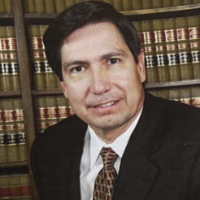Leesville DUI-DWI Lawyer, Texas
Sponsored Law Firm
-
 x
x

Click For More Info:
-
Stephanie Alvarado Attorney at Law
100 N Central Expy Suite 805 Richardson, TX 75080» view mapCriminal Defense Law Fighting Against Unjust Prosecution
Attorney Stephanie Alvarado is there for her clients when help is needed right away. Helping people charged with crimes in Texas for over 20 years.
800-988-5471
Christopher D. Cavazos
Christopher D. Cavazos is a knowledgeable Criminal Law and DWI attorney who has more than 15 years of experience. Mr. Cavazos previously worked as a c... (more)
Sam H. Lock
✓ VERIFIEDMr. Lock began his career in civil litigation and then opened the doors of The Law Office of Sam H. Lock in 2000. For more than 10 years, he has been ... (more)
Robert J. Barrera
✓ VERIFIEDWhen you face civil or criminal charges, you need an attorney with the experience and competence to ensure the best possible outcome for your case. Tr... (more)
Marc A. LaHood
✓ VERIFIEDMarc LaHood is a Texas trial lawyer that has fought on behalf of his clients across Central and South Texas; from Pecos to Houston, from Paris to Lare... (more)
FREE CONSULTATION
CONTACTFREE CONSULTATION
CONTACTFREE CONSULTATION
CONTACTFREE CONSULTATION
CONTACT Stephanie Alvarado Richardson, TX
Stephanie Alvarado Richardson, TX Practice AreasExpertise
Practice AreasExpertise




